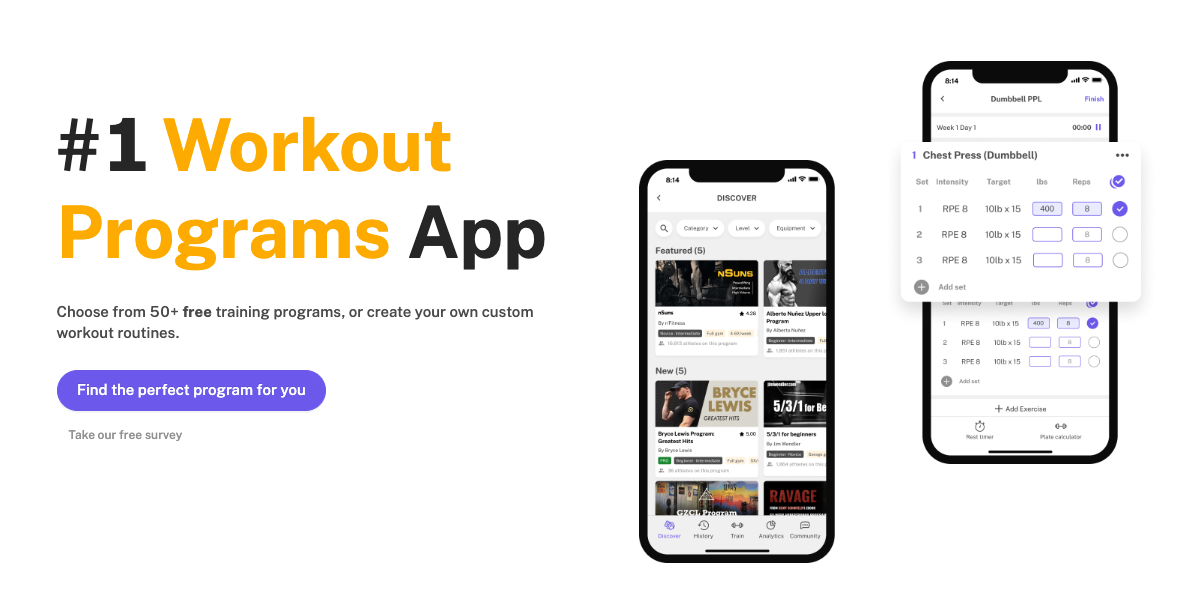Optimizing Sleep for Muscle Growth: Guide for Gym Rats
Written by The Boostcamp Editors
Sleep for Muscle Growth: A Guide for Gym Rats
Whether you are into bodybuilding, competitive powerlifting, or Olympic weightlifting, you know that a consistent workout routine and proper nutrition are vital for achieving your fitness goals, whether you are looking to just be fit, or you want to pack on size or strength. But are you aware that optimizing your sleep is just as crucial for bodybuilders' muscle growth? Many times gym goers think that lifting more and more and just continuing to incorporate things like progressive overload will help them grow more than anything, when in reality, closing your eyes and getting a good night's sleep is just as important for muscle growth as lifting and eating are, especially for individuals with busy lives. This is supported by a more recent study from Australia, which found that “sleep restriction can have detrimental effects on the processes that maintain muscle mass… (which) may partly help to explain previous reports of reduced muscle mass in those experiencing insufficient sleep." This study suggests that a lack of sleep can lead to a catabolic environment where your body begins to break down muscle mass.
In this comprehensive guide, we'll discuss the importance of sleep optimization for muscle recovery, growth, and improved workout performance.
What is Sleep Optimization for Muscle Growth?
Hitting maxes and sets until failure certainly is the fun part of lifting, but optimizing sleep is where the real muscle growth happens. Sleep optimization is the process of maximizing the quality and duration of your sleep to promote muscle recovery and growth. It involves creating an ideal sleep environment, establishing a consistent sleep schedule, and incorporating healthy sleep habits to ensure that you get the restorative sleep your body needs to repair and build muscle tissue during rapid eye movement (REM) sleep.
Tracking both the quantity and quality of your sleep can provide insights into how long you slept and how long you spent in light, deep, or REM sleep. This information is crucial for understanding the impact of your sleep on muscle repair and growth. After any strength training or workouts focused on your muscles, pay attention to what percentage of deep sleep you had that night, as it indicates the quality of your sleep and its effect on muscle repair. Good sleep quality is associated with greater muscle strength, while short sleep duration may be a risk factor for decreased muscle strength in university students. How important is sleep for muscle growth? This change is caused by microscopic tears within the muscle tissue and an increased muscle protein breakdown rate. Cells outside these muscle fibers are alerted to fix this ‘damage.’ They then replicate, become grown cells, and fuse with these muscle fibers, creating new protein strands. And when does most of this ‘healing’ take place? While you sleep.
Why Optimize Sleep for Muscle Growth?
While it may be tempting to focus solely on your workouts, nutrition and supplementation, sleep plays a vital role in muscle growth and overall performance, making it far easier for your body to progress. When you sleep, your body enters a state of restorative rest, allowing it to repair and regenerate muscle tissue damaged during exercise.
This process not only helps you build muscle mass but also prevents injuries and improves your workout performance. Additionally, sleep influences hormone production, including growth hormone and testosterone, which are essential for muscle growth and strength.
Top 10 Tips for Optimizing Sleep for Muscle Growth
So, how do you "optimize" your sleep to build more muscle? Well, there are plenty of different ways to really catch some shuteye and maximize your muscle growth, let's take a look.
Establish a consistent sleep schedule: Go to bed and wake up at the same time every day, even on weekends, to regulate your body's internal clock.
Create a sleep-conducive environment: Keep your bedroom cool, dark, and quiet, with a comfortable mattress and pillows to ensure optimal rest.
Develop a calming bedtime routine: Engage in relaxing activities, such as reading, meditating, or taking a warm bath, to ease your mind and signal your body that it's time to go to sleep.
Limit screen time before bed: Avoid using electronic devices for at least an hour before sleep, as blue light exposure can interfere with melatonin production.
Watch your diet and hydration: Avoid heavy meals, caffeine, and alcohol close to bedtime. Stay hydrated throughout the day, but reduce fluid intake in the evening.
Prioritize stress management: Incorporate stress-reducing activities, like exercise, yoga, or meditation, into your daily routine to promote better sleep.
Be mindful of naps: Limit naps to 20-30 minutes during the early afternoon to avoid disrupting your nighttime sleep.
Exercise regularly: Maintain a consistent workout routine, ideally earlier in the day, to improve sleep quality and support muscle growth.
Monitor sleep and progress: Use an app like Boostcamp to track sleep quality, workout performance, and nutrition, helping you make informed decisions for optimization.
Seek professional help if needed: Consult with a doctor or healthcare professional if you consistently struggle with sleep, despite implementing the above strategies.
Pros and Cons of Sleep Optimization for Muscle Growth
As with anything, there are pros and cons to sleep optimization, so let's take a look at what those pros and cons may be.
Pros:
Enhanced muscle recovery and growth
Improved workout performance
Reduced risk of injuries
Boosted immune system function
Improved cognitive function and mood
Cons:
Requires commitment to a consistent sleep schedule
May require lifestyle changes to optimize sleep habits and environment
FAQ: Top 10 Most Common Questions About Sleep and Muscle Growth
Now with all of that being said, you may still have some questions regarding sleep and muscle growth, so let's address them.
How much sleep do I need for optimal muscle growth?
Aim for 7 to 9 hours of quality sleep per night, as recommended by the National Sleep Foundation. It has actually been said that if you are sleeping less than 6 hours a night, your testosterone levels will replicate that of someone ten years your senior, meaning they can be significantly lower. However, individual needs may vary, so listen to your body and adjust your sleep schedule accordingly. Generally speaking, anything you can do to improve your sleep health will also help you get more deep sleep. Here’s a good place to start: aim for 7 to 9 hours of sleep each night, the guideline for healthy adults. The most important thing you can do to increase your amount of deep sleep is to allow yourself adequate total sleep time. When we don’t get enough sleep, our bodies release higher levels of the stress hormone cortisol, which inhibits the repair of muscle (and can even make your body hold onto its fat stores).
What are the best pre-sleep habits to promote restorative sleep?
Establish a calming bedtime routine, limit screen time before bed, and avoid heavy meals, stimulants like caffeine, and alcohol close to bedtime.
Can I use supplements to improve my sleep quality?
Consult with a healthcare professional before starting any sleep supplement regimen. Some supplements, like melatonin, may help as melatonin is a hormone that your brain naturally produces in response to darkness. It helps with your circadian rhythm and your overall sleep, but prioritize improving sleep hygiene first.
How does sleep affect my workout performance?
Adequate sleep improves energy levels, reaction time, and focus, leading to more productive and effective workouts.
Can I catch up on sleep over the weekend to make up for weekday sleep deficits?
While occasional sleep catch-up may help, consistently prioritizing sleep throughout the week is crucial for muscle growth and overall health.
How can I create an optimal sleep environment?
Keep your bedroom cool, dark, and quiet. Invest in a comfortable mattress and pillows and minimize distractions.
Can napping help with muscle recovery and growth?
Short naps (20-30 minutes) can provide a temporary energy boost, but prioritize quality nighttime sleep for optimal muscle recovery.
How do I know if I'm getting enough restorative sleep?
Monitor your energy levels, mood, and workout performance. If you struggle in these areas despite adequate sleep, consult a healthcare professional.
What if I have a hard time falling asleep or staying asleep?
If you consistently struggle with sleep, consider consulting a healthcare professional to rule out any underlying issues. There are the aforementioned supplements that you can try, such as melatonin, but still you should consult a healthcare professional. In the meantime, focus on improving your sleep hygiene and making lifestyle changes to promote better sleep quality.
How can Boostcamp help me track my sleep and muscle growth progress?

Boostcamp App offers science-based workout programs for building muscle and strength, but it is much more than just cookie-cutter workout routines you can find anywhere on the internet. With Boostcamp, you can also create your own custom workout routines and log your progress. It is the perfect companion for your weight training as you optimize your sleep to grow muscle and strength.
Sleep and Muscle Growth Conclusion:
Optimizing sleep for muscle growth is essential for any active person looking to maximize their gains and improve workout performance, whether they be interested in bodybuilding, powerlifting, weightlifting, or just the average gym enthusiast, sleep is important for your recovery process. By committing to a consistent sleep schedule, creating an ideal sleep environment, and incorporating healthy sleep habits, you can ensure that your body gets the restorative rest it needs for optimal muscle recovery and growth. Remember to track your progress using the Boostcamp app, the last lifting app you'll ever need to achieve your fitness goals. Prioritize your sleep, and watch your gains soar.
Also, be sure to follow Boostcamp on Instagram and subscribe on YouTube!

